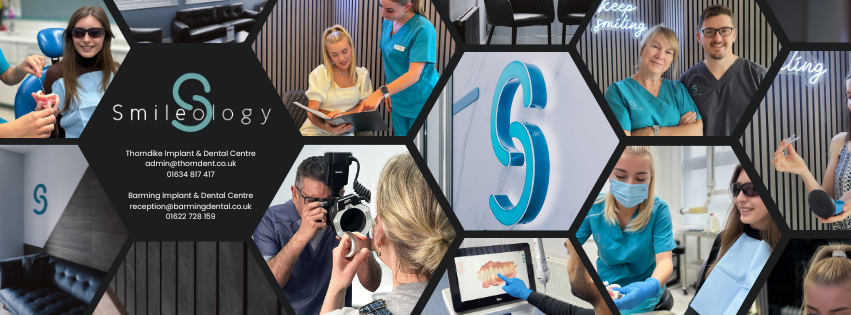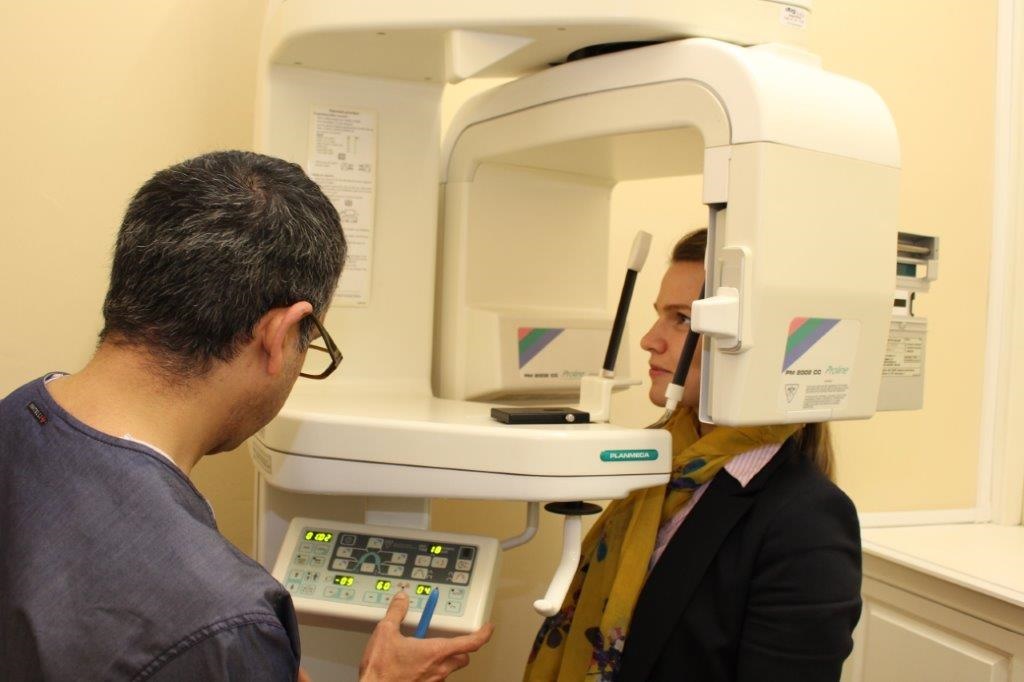Quick Relief: Finding an Emergency dentist near me for Immediate Dental Care
Are you suffering from a severe toothache or a dental emergency? Finding an emergency dentist near me for immediate dental care is essential to alleviate the pain and prevent further damage. Don’t fret! We’ve got you covered. Our team of highly skilled dentists is here to provide you with quick relief and expert care when you need it the most.
In this article, we will guide you on how to find an emergency dentist near me, ensuring that your urgent dental needs are addressed promptly and effectively. Whether it’s a broken tooth, a knocked-out tooth, or a sudden dental issue, our comprehensive guide will help you locate a reliable emergency dentist in your area.
We understand the urgency of dental emergencies, and our mission is to connect you with trusted dentists who prioritize your well-being and provide quality care. Don’t let your dental emergency worsen – read on to discover how to find an emergency dentist near you and get the quick relief you deserve.
Understanding the importance of emergency dental care
Dental emergencies can strike at any moment, causing severe pain, discomfort, and potential long-term complications if not addressed promptly. Whether it’s a sudden toothache, a knocked-out tooth, or a severe injury to the mouth, seeking immediate dental care is crucial to alleviate the problem and prevent further damage.
Ignoring a dental emergency can have serious consequences, such as the spread of infection, the loss of a tooth, or even the need for more extensive and costly treatments down the line. By visiting an emergency dentist, you can receive the necessary treatment to stop the pain, address the underlying issue, and prevent the situation from worsening.
Emergency dental care is not just about addressing the immediate problem; it’s also about safeguarding your overall oral health and well-being. Prompt attention to dental emergencies can help you avoid complications, reduce the risk of long-term problems, and maintain a healthy, functional, and aesthetically pleasing smile. Investing in emergency dental care is an investment in your overall health and quality of life.
Signs that you may need to visit an emergency dentist- dentist near me
Recognizing the signs of a dental emergency is the first step in seeking the right care. Some common indicators that you may need to visit an emergency dentist include:
- Severe, persistent toothache or pain: A severe, throbbing, or shooting pain in a tooth or the surrounding gum area is a clear sign that you need immediate attention.
- Broken, cracked, or chipped tooth: A broken, cracked, or chipped tooth can be extremely painful and vulnerable to infection, requiring prompt treatment.
- Knocked-out or dislodged tooth: If you have lost a tooth due to trauma or an accident, it’s crucial to seek emergency dental care as soon as possible, as there may be a chance of saving the tooth.
- Severe swelling in the mouth or face: Significant swelling in the mouth, gums, or face can be a symptom of a serious infection, which requires immediate attention to prevent the condition from worsening.
- Uncontrolled bleeding: Persistent bleeding from the mouth or gums that doesn’t stop within 10-15 minutes may indicate a more severe underlying issue and should be addressed by an emergency dentist.
- Trauma or injury to the mouth or jaw: If you have experienced a blow to the face, a sports-related injury, or any other trauma to the mouth or jaw, it’s important to seek emergency dental care to assess and treat any potential damage.
How to find an emergency dentist near you
When faced with a dental emergency, time is of the essence. Knowing how to quickly locate a reliable emergency dentist in your area can make all the difference in receiving the prompt care you need.
One of the most effective ways to find an emergency dentist near you is to search online. Many dental practices and clinics now have a strong online presence, making it easy to search for “emergency dentists near me” or “24-hour dental clinics” in your local area. These searches will typically provide you with a list of nearby options, along with their contact information, hours of operation, and any additional details about their emergency dental services.
Another helpful resource is to contact your regular dentist’s office. Even if they don’t offer 24-hour emergency care, they may be able to provide you with a referral to a trusted emergency dentist in the area or direct you to the nearest dental clinic that specializes in urgent care. Your dentist’s office may also be able to fit you in for an emergency appointment or guide you on the appropriate next steps to take.
If you’re unable to reach your regular dentist or prefer to explore other options, you can also check with your health insurance provider. Many insurance companies maintain a list of in-network emergency dentists or can point you in the right direction to find a qualified provider who accepts your coverage. This can be especially helpful if you’re traveling or away from your home area when a dental emergency arises.
Factors to consider when choosing an emergency dentist
When faced with a dental emergency, it’s essential to choose an emergency dentist who can provide you with the prompt, high-quality care you need. Here are some key factors to consider when selecting an emergency dentist:
- Proximity and availability: Look for an emergency dentist that is conveniently located and can see you as soon as possible. Ideally, you’ll want to find a provider that offers 24-hour or extended-hour services to ensure you can receive treatment when you need it most.
- Credentials and experience: Ensure that the emergency dentist you choose is licensed, experienced, and trained to handle a wide range of dental emergencies. Check their qualifications, reviews, and any specialties they may have.
- Range of services: A comprehensive emergency dental practice should be equipped to handle a variety of urgent dental issues, from tooth extractions and root canals to treatments for severe pain, swelling, or trauma.
- Patient-centered approach: Look for an emergency dentist who prioritizes patient comfort and care. They should be attentive to your needs, explain treatments clearly, and provide a calm and reassuring environment during your visit.
- Insurance and payment options: Consider an emergency dentist who accepts your dental insurance plan and offers flexible payment options, such as payment plans or financing, to ensure that cost doesn’t become a barrier to receiving the care you need.
- Reputation and reviews: Research the emergency dentist’s reputation by reading online reviews, checking with the Better Business Bureau, and asking for recommendations from friends, family, or your regular dentist.
The benefits of immediate dental care
Seeking immediate dental care for a dental emergency can provide numerous benefits that extend far beyond just alleviating the immediate pain or discomfort. Some of the key advantages of prompt emergency dental treatment include:
- Stopping the pain and discomfort: One of the primary benefits of visiting an emergency dentist is the ability to quickly address the underlying cause of your dental pain and provide relief. Whether it’s a severe toothache, a broken tooth, or a dental injury, prompt treatment can help alleviate your symptoms and get you back to feeling comfortable.
- Preventing further damage: Delaying treatment for a dental emergency can often lead to the problem worsening, potentially causing more extensive damage to your teeth, gums, or surrounding structures. Seeking immediate care can help stop the progression of the issue and prevent the need for more complex or costly treatments down the line.
- Reducing the risk of infection: Many dental emergencies, such as a broken or knocked-out tooth, can create an entry point for harmful bacteria, leading to the development of a serious infection. Prompt treatment can help mitigate the risk of infection and the associated complications.
- Preserving your natural teeth: In the case of a knocked-out tooth or severe trauma, immediate dental care can increase the chances of successfully replanting or saving the natural tooth, rather than requiring a more permanent solution like a dental implant or bridge.
- Minimizing long-term oral health issues: Addressing a dental emergency promptly can help prevent the development of long-term problems, such as chronic pain, gum disease, or tooth loss, which can have a significant impact on your overall oral health and quality of life.
- Providing peace of mind: Knowing that you can access emergency dental care when you need it can give you a sense of security and help alleviate the stress and anxiety that often accompanies a dental emergency.
Common dental emergencies and how to handle them
Dental emergencies can take many forms, and it’s important to be prepared to handle them effectively. Here are some of the most common dental emergencies and how to respond:
Toothache: A severe, persistent toothache is one of the most common dental emergencies. If you experience a toothache, rinse your mouth with warm water, gently floss to remove any food particles, and take over-the-counter pain medication if necessary. However, do not attempt to “treat” the toothache yourself, as this can often make the problem worse. Seek immediate attention from an emergency dentist.
Broken or chipped tooth: If you have a broken or chipped tooth, rinse your mouth with warm water and apply a cold compress to the affected area to reduce swelling and pain. Collect any broken tooth fragments and bring them with you to the emergency dentist. Avoid chewing on that side of your mouth and seek treatment as soon as possible.
Knocked-out tooth: If you have a tooth that has been completely knocked out, it’s essential to act quickly. Gently pick up the tooth by the crown (the white part), avoiding the root. Rinse the tooth with water, but do not scrub it or remove any attached tissue. If possible, try to reinsert the tooth back into the socket, making sure it’s facing the correct way. If you can’t do this, place the tooth in a container of milk or saliva and seek emergency dental care immediately.
Severe swelling: Significant swelling in the mouth, face, or neck can be a sign of a serious infection and requires immediate attention. Rinse your mouth with warm salt water, apply a cold compress to the affected area, and seek emergency dental care as soon as possible.
Bleeding that won’t stop: If you’re experiencing uncontrolled bleeding from your mouth or gums that doesn’t stop within 10-15 minutes, apply firm, gentle pressure with a clean cloth or gauze and seek emergency dental care immediately.
In any of these situations, it’s crucial to remain calm, take the necessary first-aid steps, and contact an emergency dentist right away to receive the prompt, professional care you need.
Preparing for your emergency dental appointment
When faced with a dental emergency, it’s important to be prepared and have the necessary information and documentation ready before your appointment. Here’s what you should do to prepare:
- Make a list of your symptoms: Clearly describe the nature and severity of your dental problem, including any pain, swelling, bleeding, or other relevant details. This information will help the emergency dentist provide the most appropriate and effective treatment.
- Gather your medical and dental history: Be prepared to provide the emergency dentist with your medical history, any pre-existing conditions, and a list of any medications you’re currently taking. This information can be crucial in determining the best course of treatment.
- Bring your insurance information: If you have dental insurance, make sure to have your insurance card or policy information handy. This will help the emergency dentist’s office verify your coverage and ensure that you receive the maximum benefits possible.
- Arrange for transportation: If you’re in significant pain or discomfort, it may be difficult for you to drive yourself to the emergency dentist’s office. Consider arranging for a friend, family member, or rideshare service to transport you to and from your appointment.
- Prepare for any necessary follow-up: Depending on the nature of your dental emergency, the emergency dentist may recommend additional treatments or a follow-up appointment with your regular dentist. Be prepared to schedule any necessary follow-up appointments before leaving the clinic.
- Bring any relevant documentation: If you have any recent dental X-rays, records, or other relevant documentation, bring them with you to the emergency appointment. This can help the dentist better understand your dental history and provide more informed treatment.
By taking the time to prepare for your emergency dental appointment, you can help ensure that you receive the prompt and effective care you need, while also minimizing any potential delays or complications.
What to expect during your emergency dental visit
When you arrive at the emergency dentist’s office, you can expect a streamlined and efficient process to address your immediate dental needs. Here’s what you can typically expect during your emergency dental visit:
- Prompt attention: As a dental emergency patient, you’ll be seen as soon as possible, often before other scheduled appointments. The staff will work to get you in and out of the office quickly to alleviate your pain and discomfort.
- Thorough evaluation: The emergency dentist will conduct a comprehensive examination of your mouth, teeth, and any affected areas. They may take X-rays or use other diagnostic tools to determine the extent of the problem and the best course of treatment.
- Pain management: The dentist will work to provide you with immediate pain relief, whether through the use of local anesthesia, pain medication, or other techniques. Their goal is to make you as comfortable as possible during the treatment.
- Targeted treatment: Based on the evaluation, the emergency dentist will provide the necessary treatment to address the underlying issue, such as a tooth extraction, a temporary filling, or the reattachment of a knocked-out tooth.
- Aftercare instructions: Before you leave, the dentist will provide you with detailed instructions on how to care for the treated area, any medications you should take, and any follow-up appointments that may be necessary.
- Coordination with your regular dentist: If the emergency dentist is not your regular provider, they will likely coordinate with your primary dentist to ensure continuity of care and to provide any necessary information about the treatment you received.
Remember, the emergency dentist’s primary goal is to alleviate your immediate pain and discomfort, while also taking steps to prevent further complications and ensure your long-term oral health.
Aftercare and follow-up for emergency dental treatments
After receiving emergency dental treatment, it’s essential to follow the dentist’s instructions carefully to ensure a smooth recovery and prevent any complications. Here’s what you can expect in terms of aftercare and follow-up:
- Pain management: The dentist may prescribe pain medication or recommend over-the-counter options to help manage any discomfort or pain following the emergency treatment. It’s important to take these medications as directed.
- Oral hygiene: The dentist will likely provide specific instructions on how to care for the treated area, such as gentle brushing, rinsing with warm salt water, or avoiding certain foods. Adhering to these guidelines can help promote healing and prevent infection.
- Dietary recommendations: Depending on the nature of the emergency treatment, the dentist may advise you to temporarily stick to a soft, cool diet to avoid irritating the affected area.
- Follow-up appointments: In many cases, the emergency dentist will recommend a follow-up appointment with your regular dentist or a specialist to ensure the continued healing and health of the treated area. It’s crucial to attend these appointments as scheduled.
- Monitoring for complications: The emergency dentist will likely advise you to watch for any signs of complications, such as persistent pain, swelling, or bleeding, and to contact them immediately if any issues arise.
- Continued care: If the emergency treatment was a temporary solution, such as a temporary filling or crown, the dentist will likely recommend scheduling an appointment with your regular dentist to have a more permanent restoration completed.
By following the emergency dentist’s aftercare instructions and attending any necessary follow-up appointments, you can help ensure a successful recovery and maintain the long-term health of your teeth and gums.
Conclusion: Taking proactive steps for your dental health
Dental emergencies can be stressful and disruptive, but with the right knowledge and preparedness, you can ensure that you receive the prompt and effective care you need. By understanding the importance of emergency dental care, recognizing the signs that indicate a dental emergency, and knowing how to quickly locate a reliable emergency dentist near you, you can take proactive steps to safeguard your oral health and well-being.
Remember, the key to addressing a dental emergency is to act quickly and seek professional treatment as soon as possible. Ignoring a dental problem or trying to “tough it out” can often lead to more serious complications, increased pain, and the need for more extensive and costly treatments down the line.
By making your dental health a priority and being prepared for potential emergencies, you can enjoy the peace of mind that comes with knowing you have access to the care you need, when you need it most. Don’t wait until a dental emergency strikes – take the time to research and identify the emergency dentists in your area, so you can be ready to respond quickly and effectively when the unexpected happens.
Your oral health is an essential component of your overall well-being, and by taking proactive steps to address dental emergencies, you’re investing in the long-term health and quality of your smile. So, don’t hesitate – be prepared, act quickly, and get the emergency dental care you need to find quick relief and maintain a healthy, happy smile for years to come.
Internal Links:
- Dental Implants Kent
- Home
- Tooth Dental Implant in Kent
- Fee Guide
- Who Does Dental Implants Near Me in Kent
- Contact Us
- Full Mouth Dental Implants Near Me
External Links:






